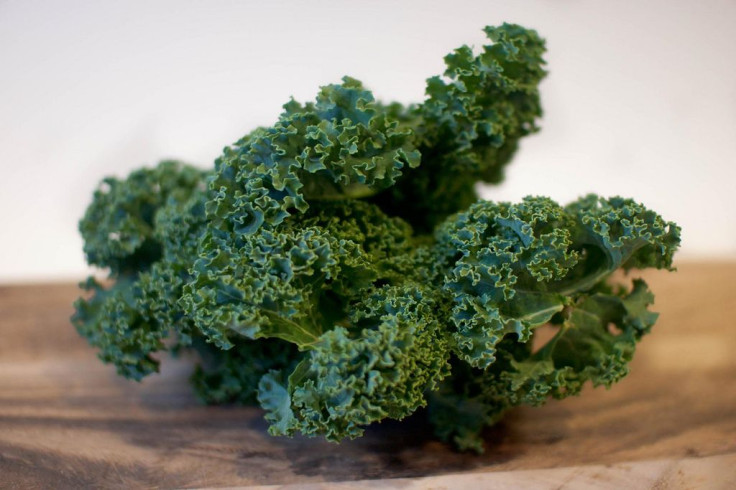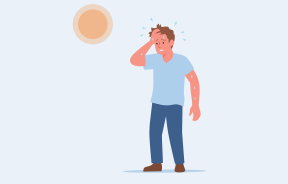Rewards Matter Less When We Face Conflict Of Choice: The Challenge Of Eating Healthy

Let’s say you’re out to eat. Wanting to stay on a diet, you peruse the restaurant’s menu for its light and fit options. You bypass the burgers, steaks, and pasta, and ultimately land on a salad you think might have potential. But in the corners of your mind still lurk those fatty, high-calorie cravings. Before you know it, the waitress has arrived to take your order. What do you do?
For the countless people who face this dilemma each time they go out to eat, the choices tend to seem pretty clear. Either you cave to your desires and enjoy the meal, but ultimately regret your lapse in self-control. Or you resign yourself to the sensible meal option, feeling slightly better, while trying to convince yourself flavor isn’t actually that important. New research suggests there’s a third option, and it argues the context in which we eat — or make any tough decision, for that matter — matters more than the problem itself.
“When people experience some difficulty in performing a particular task, that experience is aversive,” said Michael Frank, associate professor and neuroscientist at Brown University, to Medical Daily. By aversive, Frank simply means we don’t really like it. The aversion is the regret we feel — and almost a fear of missing out — when we order a salad over a steak. “You learn something negative when you’re in situations where you have to exert that kind of effort to regulate your behavior.”
As the waitress walks away, having jotted down your salad order, back at the table your brain is busy sorting through all the options on the menu that would have been more satisfying to your palate. You might know the salad is a healthier option on an intellectual level, but your sense of aversion is ingrained through experience. Your brain craves a fatty, meaty cut of steak, because that’s what you’ve fed it. And that’s important for people like Frank who spend great deals of time looking at how our brains respond to rewards.
Recently, Frank and some of his colleagues from the University of New Mexico conducted a study that found when people are asked to make certain choices, the rewards they feel are diminished when the choices demand more cognitive effort. The effects weren’t observational either. Frank and his team used genetic testing, eye blink analyses, low-dose manipulation with a dopamine drug, and EEG scans to measure people’s brain waves. They found the same reward systems our brains use to remind us steak is awesome, which are located in the brain’s striatum, were integrated into the circuits responsible for conflict, effort, and difficulty, found in the frontal cortex. In other words, it’s no wonder your will power makes you feel lousy.
“Let’s say the healthy salad turned out to be pretty good,” Frank said. “You’d get some reward value that you would assign to making that choice with the healthy salad. But the implication here is that by virtue of having to go through that initial difficulty in overriding your tendencies, your actual learned value would be a little lower. You wouldn’t learn to like it as much.”
The intellectual knowledge that a salad is healthier than a steak is unsatisfying as a reward because there were so many other delicious options, and taste feels better than patting yourself on the back. The trick to maximizing the reward, as Frank sees it, is to limit the field of potential distractors so that you don’t feel let down. In other words, give yourself less choice in the matter. If you know you should be eating salad, as far as you can help it try to eat at places that only sell salad. Even if you picked the same salad, Frank explains, “you would like that one more than the case where you actually had to override a dominant response.”
It all goes back to the initial condition. When our brains have to work harder, the rewards we feel for making the right choice, however we judge correctness, don’t feel as great because we knew what else was out there. We can look up and down an entire menu of unhealthy options and know, without even trying the salad, that it won’t be as tasty or feel as nourishing as the steak. But if the menu does the decision-making for us, our brains can comfortably choose which option we’ll dislike the least.
Though, Frank isn’t sure whether avoiding choice altogether is the best option. Sometimes it’s in our interest to make the tough choice. As long as we’re aware of our expectations, the added boost in will power could, in fact, make taste less of a priority. Over time, we might even learn to like the salad.
“It suggests a conundrum in some sense,” Frank said, “that you want to be able to exercise that control so that you experience less of that conflict, and therefore the less you would experience that aversive nature of conflict.”
Source: Cavanagh J, Masters S, Bath K, Frank M. Conflict acts as an implicit cost in reinforcement learning. Nature Communications. 2014.
Published by Medicaldaily.com



























